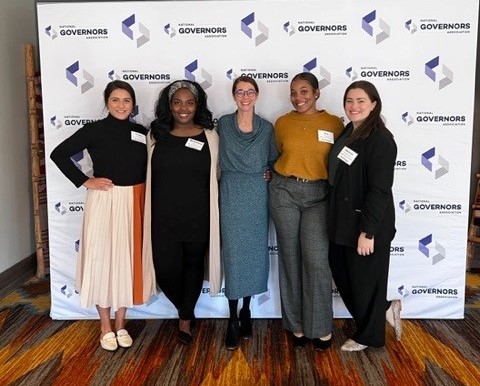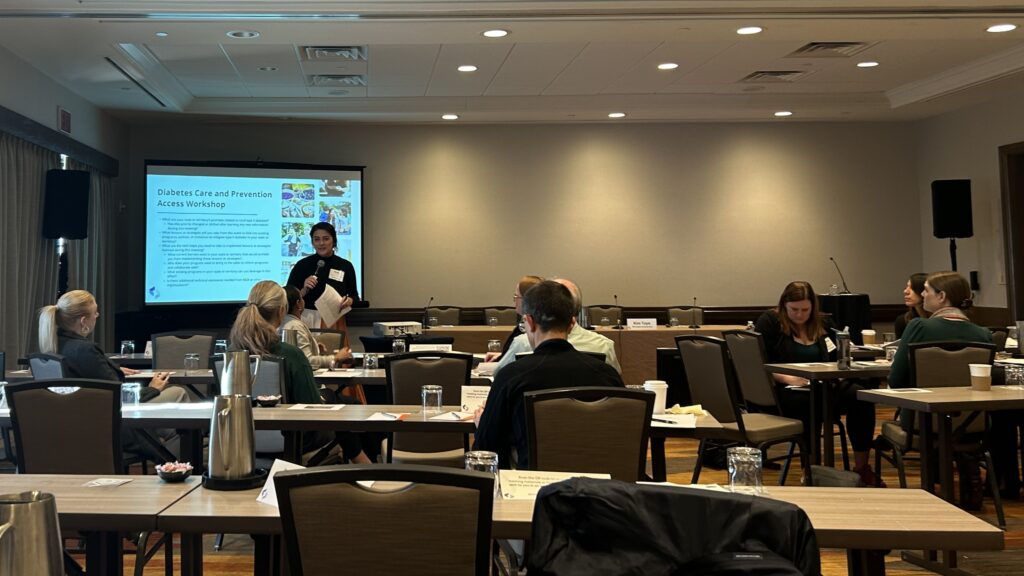The most common type of diabetes, type II, impacts over 34 million Americans. Additionally, about 96 million Americans have prediabetes, putting them at high risk of developing type II diabetes. With the large number of impacted Americans, significant associated medical expenses and indirect costs of the condition, diabetes is one of the most expensive chronic conditions in the United States. The annual cost of diabetes is $412 billion, and those diagnosed spend twice as much on medical care compared to people who do not have diabetes. Furthermore, a large majority of those diagnosed with type II diabetes are members of historically marginalized racial groups, have lower socioeconomic statuses or are rural residents. For example, diabetes rates in American Indian and Alaska Native (AIAN) communities are double that of the national average, and those identifying as AIAN are 1.8 times more likely to die from diabetes compared to other racial groups. Additionally, individuals living in the Appalachian Region are 1.4 times more likely to have diabetes than those living in other areas and have significantly less access to health care than most communities.
Given the significant challenges that persist in preventing and managing type II diabetes, the National Governors Association Center’s (NGA Center) Public Health Team developed a partnership with the Centers for Disease Control and Prevention’s (CDC) Division of Diabetes Translation to assist states and territories. As part of a five-year collaboration, the NGA Center has published playbooks, held meetings and webinars, and worked with states and territories to improve policies that impact individuals diagnosed with and at risk of developing type II diabetes. Most recently, the NGA Center held a multi-state convening November 2-3, 2023, outside of Albuquerque, New Mexico, to discuss efforts to mitigate and manage type II diabetes in rural communities and in Tribal Nations.
The “Type 2 Diabetes Summit for Health Policy Advisors” convening brought together 12 states and territories, the CDC, NGA Partners and other diabetes experts to discuss challenges and share solutions to prevent diabetes and improve access to culturally responsive treatment options. Of note, the meeting was held on Santa Ana Pueblo land where the tribe’s leaders, Governor Nathan Garcia and Lieutenant Governor R. Michael Lujan, welcomed attendees and shared information on efforts the Tribal Nation has developed to address type II diabetes within the Tamaya Indian Reservation. For example, the Tamaya Wellness Program works with the community to increase physical activity, boost healthy eating through education, and provide support for disease prevention and self-care by using Tribal knowledge alongside evidence-based public health models.

Throughout the meeting, panelists and presenters shared information with attendees on innovative ways to create evidence-informed programs that effectively reach rural populations. The meeting and surrounding conversations drew upon a reoccurring theme that inequities borne by rural populations and Tribal Nations are often exacerbated by specific social drivers and reinforced by historical, systemic injustices. Participants noted that socioeconomic status is a major contributor to various access issues seen in rural communities. Additionally, attendees reinforced the importance of tailoring interventions to those receiving services, as well as focusing on transportation, education and food security barriers compounded by lower socioeconomic status in rural and Tribal populations. For example, states and territories shared information about the importance of community healthcare workers and partnering with community-based organizations to produce culturally appropriate, effective interventions.

Attendees also discussed ways to use data and engage with the community to inform culturally tailored programs and build trust within target populations. Much of this conversation focused on attempts to break down silos within data management and sharing to develop a better-informed health infrastructure.
A representative from MassHealth, Gary Sing, spoke about MassHealth’s Medicaid 1115 waiver designed to address type II diabetes through investments in health-related social needs, specifically housing and nutrition support. Kayla McFeely with the National Association of Chain Drug Stores (NACDS) shared details about a newly launched Nourish My Health Program. This campaign incorporates chain drug stores in the promotion of preventive screenings and raises awareness about the power of nutritious foods as a part of lifestyle changes.
The National Indian Health Board’s CEO Stacy Bohlen shared details about the Special Diabetes Program for Indians. This program has demonstrated a variety of successful outcomes, including decreased diabetes prevalence among AIAN adults, decreased blood sugar levels and A1c levels, and no increase in obesity or diabetes rates in adults for the last ten years. This program partners with Tribal Nations to design and implement interventions based on the community’s cultural practices and needs.

The summit concluded with a state-only workshop followed by a discussion about the importance of public and private partnerships. States discussed ways to incorporate community health workers and reimbursements into intervention efforts. Arkansas and the U.S. Virgin Islands highlighted collaborations with faith-based organizations and Federally Qualified Healthcare Centers (FQHCs). Additionally, conversations were held around promoting preventive care to prevent frequent acute care visits, aiming to encourage healthy behaviors, screenings and long-term cost savings. During the public and private partnership conversation, experts from Elevance Health and Trust for America’s Health offered an opportunity for attendees to gauge how partners can provide technical assistance and subject matter expertise on a variety of confounding variables related to type II diabetes in rural and Tribal populations. Partnerships not only provide connections and funding resources for states and territories; they can also support data collection and infrastructure efforts aimed towards addressing the needs of communities most impacted.
NGA hopes to further the conversation around efforts to reduce the incidence and prevalence of type II diabetes in rural and Tribal Nation populations by providing states and territories with a social driver contextual perspective informed by evidence-based data.












